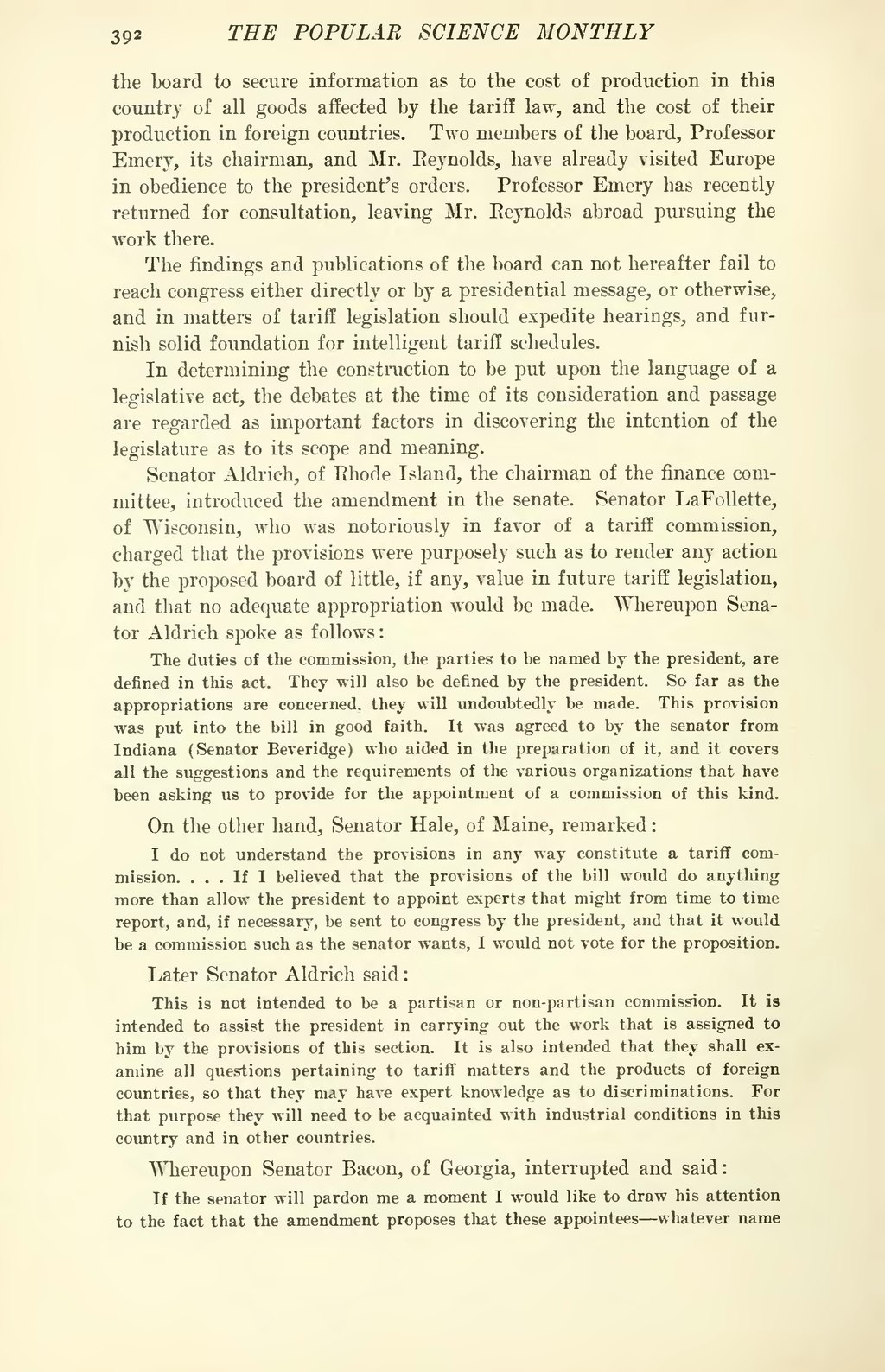the board to secure information as to the cost of production in this country of all goods affected by the tariff law, and the cost of their production in foreign countries. Two members of the board, Professor Emery, its chairman, and Mr. Reynolds, have already visited Europe in obedience to the president's orders. Professor Emery has recently returned for consultation, leaving Mr. Reynolds abroad pursuing the work there.
The findings and publications of the board can not hereafter fail to reach congress either directly or by a presidential message, or otherwise, and in matters of tariff legislation should expedite hearings, and furnish solid foundation for intelligent tariff schedules.
In determining the construction to be put upon the language of a legislative act, the debates at the time of its consideration and passage are regarded as important factors in discovering the intention of the legislature as to its scope and meaning.
Senator Aldrich, of Rhode Island, the chairman of the finance committee, introduced the amendment in the senate. Senator LaFollette, of Wisconsin, who was notoriously in favor of a tariff commission, charged that the provisions were purposely such as to render any action by the proposed board of little, if any, value in future tariff legislation, and that no adequate appropriation would be made. "Whereupon Senator Aldrich spoke as follows:
The duties of the commission, the parties to be named by the president, are denned in this act. They will also be defined by the president. So far as the appropriations are concerned, they will undoubtedly be made. This provision was put into the bill in good faith. It was agreed to by the senator from Indiana (Senator Beveridge) who aided in the preparation of it, and it covers all the suggestions and the requirements of the various organizations that have been asking us to provide for the appointment of a commission of this kind.
On the other hand, Senator Hale, of Maine, remarked:
I do not understand the provisions in any way constitute a tariff commission. . . . If I believed that the provisions of the bill would do anything more than allow the president to appoint experts that might from time to time report, and, if necessary, be sent to congress by the president, and that it would be a commission such as the senator wants, I would not vote for the proposition.
Later Senator Aldrich said:
This is not intended to be a partisan or non-partisan commission. It is intended to assist the president in carrying out the work that is assigned to him by the provisions of this section. It is also intended that they shall examine all questions pertaining to tariff matters and the products of foreign countries, so that they may have expert knowledge as to discriminations. For that purpose they will need to be acquainted with industrial conditions in this country and in other countries.
Whereupon Senator Bacon, of Georgia, interrupted and said:
